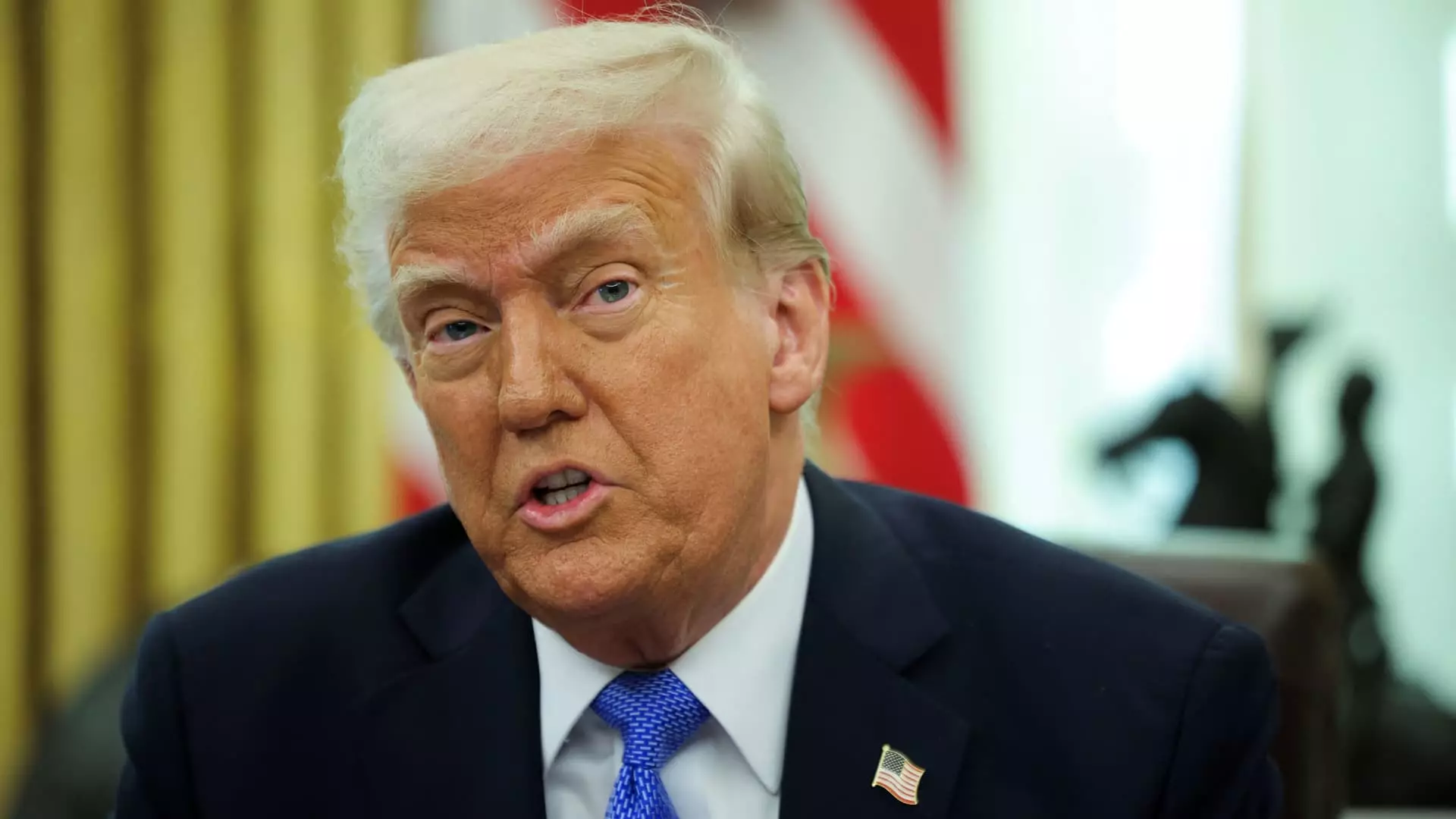In an unprecedented move, President Donald Trump has decided to transfer the management of the nation’s student loan portfolio from the Department of Education to the Small Business Administration (SBA). This decision was neither a thoughtful strategy nor a well-researched solution; instead, it seems to be a knee-jerk reaction, driven by the whims of an administration determined to dismantle perceived government inefficiencies. Trump’s assertion that the SBA is “ready” for this monumental task raises eyebrows among financial experts who question the logic of this choice—after all, the SBA specializes in aiding small businesses, not managing the educational debts of over 40 million Americans.
Federal Debt at a Critical Juncture
Outstanding educational debt has reached a staggering $1.6 trillion, making it a pressing issue that demands competent oversight and informed decision-making. Transferring the management to an agency without prior experience in this field is not merely an administrative fail; it’s potentially a disaster waiting to unfold. Experts have voiced their concerns about the dangers of such a swap, hinting at issues ranging from administrative inefficiencies to possible violations of borrowers’ privacy rights. With such a significant portion of the American population affected by this situation, one has to question whether the administration is prioritizing political posturing over the economic wellbeing of these borrowers.
Concerns About Protections and Programs
The very foundation of repayment programs like Public Service Loan Forgiveness hangs in the balance with this abrupt agency overhaul. Consumer advocates are rightly apprehensive; the transition could lead to widespread errors or a loss of critical borrower protections that have been hard-fought. What happens when a family’s financial future is jeopardized due to bureaucratic mismanagement? When lives are on the line, as they are for countless borrowers, thoughtful deliberation should dictate policy, not a whimsically penned executive order.
The Treasury Department: An Overlooked Option
With experience in handling financial matters, many experts believe the Treasury Department would have been the more sensible choice for overseeing federal student loan management. The Treasury plays a crucial role in collecting overdue debts, thus making it a more qualified candidate for such duties. The fact that Trump’s team discounted this option speaks volumes about their genuine disregard for the implications of such a significant transition—risking the stability of an entire demographic in the name of political maneuvering is far from a responsible choice.
Borrowers’ Rights Remain Intact—For Now
Despite the worrying shift in oversight, one sliver of reassurance remains: the terms and conditions of existing student loans will not change. Borrowers still retain their rights as outlined in the master promissory note they initially signed. However, given the precarious nature of this transition, how much longer can those rights remain secure? With the stakes so high, any disruption in service, miscommunication, or error could turn the lives of borrowers upside down. In this landscape of regulatory uncertainty, the stakes couldn’t be higher for young Americans who are already navigating a challenging economic environment.
The decision to switch oversight is not just a bureaucratic shuffle; it is indicative of a wider trend where financial stability is being sacrificed at the altar of political ideologies. This reckless gamble threatens to send ripples of anxiety throughout a population that deserves careful stewardship over its financial future.

